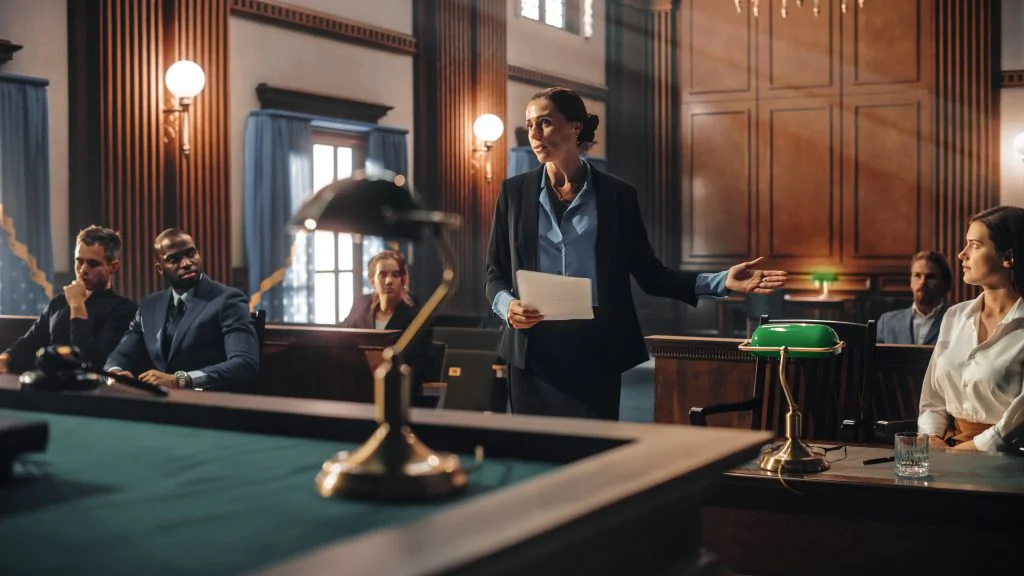A personal injury lawyer specializes in fighting for legal recourse and compensation on behalf of those who have sustained physical injuries. Those injuries must in some way be the result of negligence, liability or an intentional act (such as an assault) on the part of another person or entity. An injury under the law is any harm inflicted on an individual by the acts or omission of another.
As the name implies, this type of attorney deals in personal injury—not property damage, even if the damage results from an act of negligence as in a car crash. Personal injury (PI) cases are handled in civil court. They are considered tort law, which simply means they deal with a civil act that causes harm.
In civil court, a judge (and sometimes a jury) can award damages based in part on the severity of the injury, as well as compensation for pain and suffering. Though not typical, extreme cases have delivered billions of dollars in damages to those harmed, or their families.
What Does a Personal Injury Lawyer Do?
Car accidents are by far the most common type of case a personal injury lawyer may cover, but these attorneys handle so much more and must be extremely knowledgeable. Consider the following examples:
- Product defects: Unsafe products can have far-reaching consequences including cancer. When a product—anything from cars to medication—causes harm, a personal injury attorney can fight for the victim’s rights.
- Premises liability: Property neglect, including slippery or broken sidewalks, can result in a slip-and-fall accident for which the owner can be held responsible. This category also covers dog bites, elevator mishaps, apartment fires, inadequate security and more.
- Workplace injuries: These are employee injuries a personal injury lawyer can help victims receive compensation for. Examples might be trips, falls, cuts, burns, flying debris and broken scaffolding.
- Medical malpractice: Perhaps the most complicated personal injury case, medical malpractice involves proving that a doctor, hospital or health-care provider deviated from the established standard of care in a way that caused serious harm.
- Car, motorcycle, and pedestrian accident: The victim of a car accident linked to another’s negligence may need to go to court to receive fair compensation for their injuries. Many times, insurance companies do not fully compensate victims, and this is especially the case when it comes to pain and suffering awards. What the car accident lawyer does is battle for more equitable damages.
- Plane and other transportation accidents: Large-scale disasters like a plane crash or train derailment also fall under the umbrella of the personal injury attorney.
- Wrongful death lawsuits: Under wrongful death law, a personal injury lawyer can fight on behalf of families who have lost a loved one to another’s violence or negligence, such as nursing home abuse. This is a way of seeking justice for the deceased through a financial award. Sometimes these lawsuits are related to medical malpractice cases.
What Constitutes a Catastrophic Injury?
Not every injury from a car accident or other traumatic event is severe enough to be permanent. An accident victim may suffer a broken bone that heals yet still win court damages via a personal injury lawsuit for pain and suffering, loss of work, medical bills and more. They do not need to show the injury has disrupted their life forever.
When injury is permanent and life-altering, however, as in catastrophic harm, a personal injury lawyer can mean the difference between financial suffering and solvency. Catastrophic injuries are severe, at times paralyzing, blows to the brain, spine or spinal cord. Without a court award, the victim may lose out on the medical care they need and financial recovery.
What Makes a Good Personal Injury Attorney?
It’s more than the complexity of legal cases that makes hiring a skilled personal injury attorney worthwhile. Each case is a series of legal maneuvers none of which can be compromised, starting with the filing of the initial complaint within the required time frame—known as the statute of limitations.
A major role of the personal injury attorney is gathering evidence. The attorney will collect facts from reports and medical records as well as from the defendant in the case. The discovery process includes an opportunity for the personal injury attorney to officially question the defendant prior to trial. These formal questions are called interrogatories.
To find a capable personal injury attorney, look for someone with strong negotiating skills. They may be able to achieve a settlement without the time-consuming process of a trial by negotiating with the insurance company or opposing party’s defense. The personal injury attorney’s role often includes a demand letter, which presents his client’s legal claim and demands restitution.
Both negotiations and the demand letter are attempts to settle the case early on. If the case does go to trial, the personal injury attorney is there representing his clients in the court of law with capable arguments and testimony.
How to Choose a Personal Injury Lawyer
To make sure a lawyer is the best fit for the case involves asking key questions—like whether they have experience with this type of case and how they might proceed.
Especially in a more complicated matter like medical malpractice could this be an issue. A good fit would be a lawyer with knowledge of intricate topics like traumatic brain injury (TBI), a prime example of catastrophic harm. A lawyer who deals mostly with car and truck accidents may not be able to rise to the level of expertise needed for medical malpractice cases.
Other key questions to consider:
- Is the attorney a solo act or if they have the support of a firm?
- How can they be reached in case of an emergency or for periodic updates?
- How strong is the case and what are the chances of winning?
- What damages might be recovered?
- How long is it likely to take to resolve the case?
- What will be required of the client (e.g.: medical evaluations, accident records)?
- What is the lawyer’s experience and education?
- Do they have access to medical experts if needed to testify in court?
What is the Standard Fee for a Personal Injury Lawyer?
Many people wonder what do personal injury lawyers charge and whether they can afford to hire a lawyer to fight their case. They may have a strong complaint, even a catastrophic injury with a life-altering prognosis yet lack the resources to pay upfront for the legal help they need.
No doubt finances should be at the top of the list of what to ask a personal injury lawyer. The good news is that many law firms, like Sobo & Sobo, never take a dime unless they win the case. This non-pressured approach differs greatly from the law firms that charge by the hour and seek an upfront retainer.
When Sobo & Sobo wins a case, they are compensated through a portion of the settlement, which they helped to obtain. Never do clients pay out of pocket. All of this can be discussed at a free consultation where prospective clients can review their case and ask questions in a relaxed atmosphere. The goal is for clients to have the utmost in confidence in the legal firm they hire.
Consult a Personal Injury Attorney Today
If personal injury has caused physical or mental suffering and someone else is at fault, schedule a free consultation with one of Sobo & Sobo’s skilled personal injury attorneys. Call 855-GOT-SOBO or reach out online and discover how easy it is to get a legal champion in your corner. You will discover first-hand their proven track record of success based on 40-plus years’ experience and how they can end the financial nightmare that often accompanies injury.




